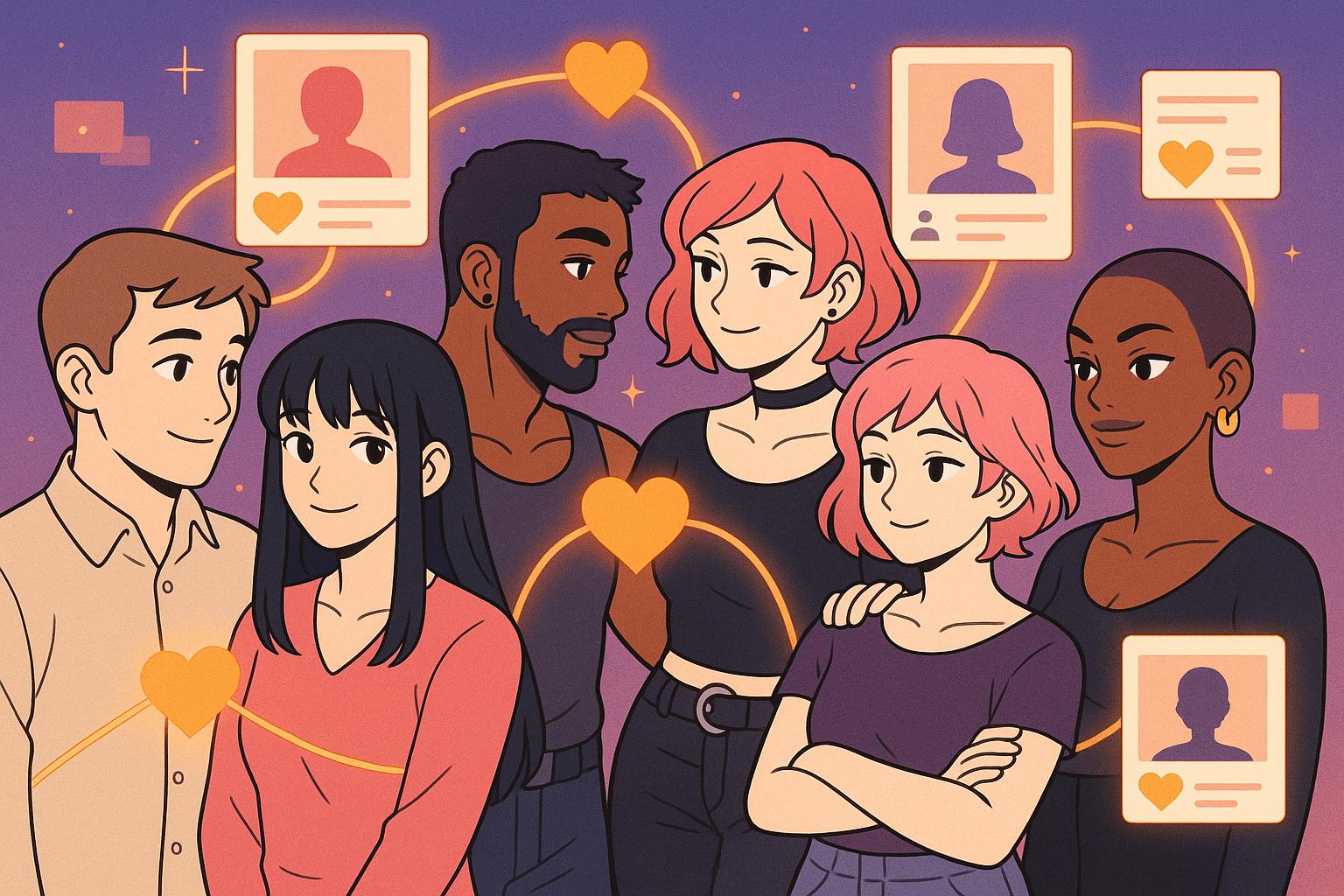The dating landscape is undergoing a noteworthy transformation, with alternative platforms like Feeld attracting a new wave of users traditionally uninterested in non-monogamous relationships. Often referred to as “vanilla tourists,” these individuals are arriving at Feeld seeking more conventional dating experiences, marking a significant shift for an app originally built to cater to those exploring ethical non-monogamy and kink. Feeld’s user base has burgeoned over recent years, with a reported growth of 30% per year since 2022, as the app gains traction amidst declining numbers for other dating platforms.
Ana Kirova, Feeld’s chief executive, has expressed a mix of optimism and concern about this influx. While she acknowledges that broadening the app’s audience was never a primary goal, Kirova suggests that accommodating newcomers could pose challenges for existing members. “Every time someone tells me about this vanilla people being on the app, I just ask: ‘What’s the problem with vanilla?’” she stated. This inquiry reflects a nuanced perspective on the diversity of dating preferences, posing the question of why there should be a hierarchical distinction between “vanilla” and more alternative experiences.
Feeld distinguishes itself from other dating apps through its unique browsing experience, allowing users to explore profiles without gamified swiping mechanisms or predictive algorithms. Kirova criticises traditional matchmaking algorithms for constraining user experiences, akin to “shopping for granola,” where choices are overly simplified. This approach has resulted in a community that, while not devoid of issues like ghosting or “benching”—where one person keeps their options open while ignoring other matches—fosters a more respectful atmosphere compared to other popular dating platforms.
However, the app still grapples with safety concerns endemic to the digital dating landscape. The rise of complex romance scams targets users, and Kirova notes that Feeld employs artificial intelligence to combat fake profiles, signalling an industry-wide battle with authenticity and safety. “There are big companies that are investing in scammers,” she explained, drawing parallels between her platform and a shadowy underbelly rife with deceit.
Culturally, Feeld is tapping into a shifting landscape regarding relationships and sexuality, particularly among younger generations. Increasing openness surrounding diverse identities and sexual orientations stands in distinct contrast to older, more static perspectives that limit sexual exploration. Kirova has observed a marked interest among women over 40, whose user numbers have risen by 16% in the last year. This change reflects broader cultural dialogues challenging outdated perceptions of female sexuality, creating space for diverse expressions and relationships.
The growing interest from Generation Z users is another testament to Feeld’s adaptability. Younger individuals are frequently seeking not just romantic connections but friendships and community support. This multi-faceted dating experience aligns with a departure from conventional dating models that emphasise quick hookups or linear progressions from dating to marriage.
As the app continues to capture the attention of vanilla tourists and alternative relationship enthusiasts alike, it must navigate the delicate balance of catering to its original mission while embracing a broader demographic. The challenge lies in ensuring that all users, whether they identify as vanilla or otherwise, feel welcomed and understood within a space that seeks to celebrate diversity rather than dilute it. As Kirova aptly puts it, “We don’t yuck anyone’s yum,” suggesting that the richness of human desire encompasses all flavours—even those considered mainstream.
Ultimately, Feeld’s expansion into more conventional territory mirrors a larger societal shift towards inclusivity in expressions of love and attraction. As the lines between vanilla and alternative dating continue to blur, platforms like Feeld will remain pivotal in shaping conversations around modern relationships, identity, and sexuality.
Reference Map:
- Paragraph 1 – [1], [3], [4]
- Paragraph 2 – [1], [2], [5]
- Paragraph 3 – [3], [4], [6]
- Paragraph 4 – [1], [3], [5]
- Paragraph 5 – [1], [2], [7]
- Paragraph 6 – [3], [5], [6]
- Paragraph 7 – [1], [4], [7]
Source: Noah Wire Services
